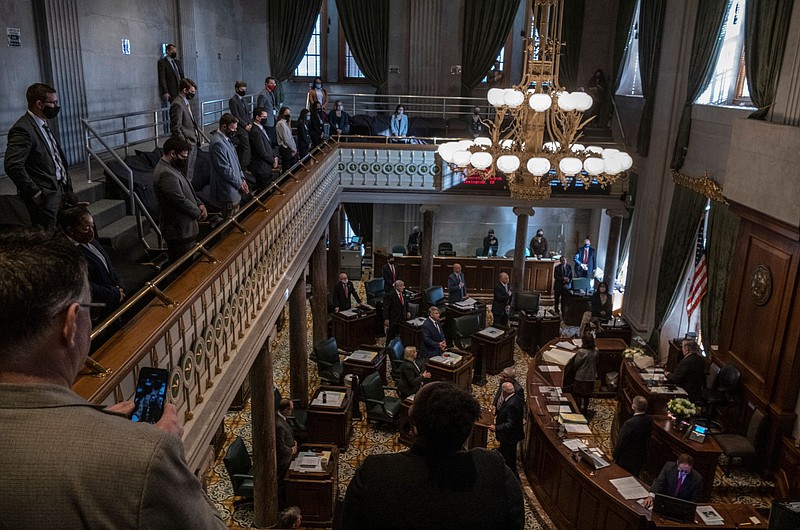Despite pushback from some who call it an "attack on the rule of law," the Tennessee Legislature has put $2.4 million toward funding a new super-chancery court in its $42.6 billion budget for fiscal year 2021-22.
Legislation establishing the three-judge panel to hear constitutional challenges to Tennessee laws is scheduled Monday in House and Senate committees, a move to bypass Davidson County chancellors who Republicans complain are elected by the state's most liberal voters. The legislation emerged following a contentious ruling on mail-in voting last year.
Lawmakers say the proposal remains in flux but opted to move forward with funding for the court with the 112th General Assembly likely to adjourn next week after its first session.
"It's still a fluid situation. There are still a lot of discussions going on around that bill," Sen. Mike Bell, R-Riceville, said Thursday after the Senate passed the budget. "I think everybody wants to get it done. It's just, how do we get there the way it's going to work best for the state of Tennessee?"
The Legislature is starting to feel some pushback, though, from across the state. A group of legal professionals, business owners and faith leaders headed by Chattanooga attorney Lee Davis sent Gov. Bill Lee and the Legislature a letter Thursday raising questions about the statewide chancery court plan.
The group called the proposal an "attack" on the judiciary that "threatens to undermine and politicize our court whose purpose is to focus on justice, not politics."
"Rushing through this legislation to set up one of the nation's first statewide trial courts will cost millions in taxpayer dollars and duplicates a process we already have," the letter states. It adds that the bill creates a "clear conflict of interest" by enabling the governor to select judges who could be ruling on challenges of his own executive orders and the bills he signs into law.
Lt. Gov. Randy McNally said Thursday he disagreed with an effort early in the session to impeach Chancellor Ellen Hobbs Lyle because of her rulings last year on absentee balloting amid the COVID-19 pandemic.
"But we felt we did need a court that was representative of the entire state and elected by the entire state to rule on situations in which the state is the defendant," McNally said at his weekly news conference.
McNally concurred with Bell's assessment that the chancery court bill is fluid and said it could be one solution, along with several other possibilities such as another chancery court, an appeals court or a statewide appeals court.
McNally said no decision has been made whether the new chancery court would make decisions based on evidence presented at a lower court or whether it would hear evidence for the first time.
In addition to constitutional questions, the court would handle redistricting cases involving the lines for congressional and legislative districts. Bell pointed out North Carolina set up a three-panel court to hear redistricting and said this could operate similarly.
Senate Minority Leader Jeff Yarbro called the chancery court legislation, including a measure to stop local governments from suing the state, a "flat-out an attack on the rule of law."
Republican leaders were disappointed in the outcome of several cases, he said, thus the Legislature is trying to change the way court decisions are made and the rules surrounding them.
"That is not the way law works in the United States of America, or at least it's not supposed to be," said Yarbro, a Nashville attorney. "The fact we would spend $2 million a year to create a brand new political court to hear at most 50, 60, 70 cases is just lunacy and doesn't help a single person in Tennessee that's confronting a real problem."
Read more at TennesseeLookout.com.
